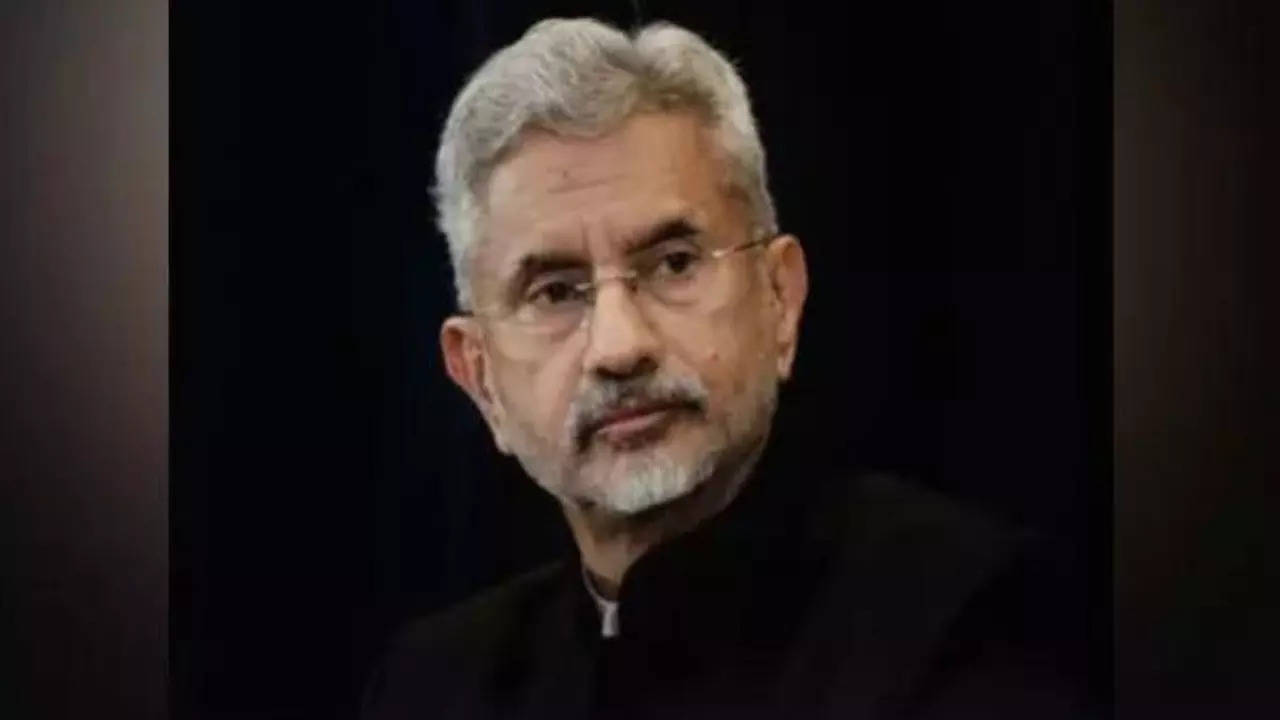COLOMBO: External Affairs Minister S Jaishankar has expressed hope for a reconciliation process that addresses the aspirations of the minority Tamil community in Sri Lanka for equality, justice and self-respect, as he highlighted the implementation of the 13 Amendment to the Constitution to achieve the objective. The remarks by Jaishankar came on Wednesday as he updated through a video message members of the India-Sri Lanka Parliamentary Friendship Association on bilateral relations.
He also reiterated India’s support for the preservation of Sri Lanka’s multi-ethnic, multi-lingual, and multi-religious identity.
Jaishankar expressed hope for a reconciliation process that addresses the aspirations of the Tamil community for equality, justice and self-respect within the framework of a united and prosperous Sri Lanka. He highlighted a meaningful devolution of powers according to the 13th Amendment (13A) to the Constitution and early conduct of Provincial Council elections as being facilitative towards this objective, according to an official statement by the Indian High Commission in Colombo.
The 13A provides for the devolution of power to the Tamil community in Sri Lanka. India has been pressing Sri Lanka to implement the 13A which was brought in after the Indo-Sri Lankan agreement of 1987.
Jaishankar also delved into India’s positive contributions to Sri Lanka’s development, stability, and prosperity based on geographical proximity and shared democratic values between the two countries.
“He highlighted the swift and substantial response by India to the economic challenges faced by Sri Lanka over the past year, exemplifying India’s commitment to the ‘Neighbourhood First’ policy. EAM emphasised that the financial assistance of approximately USD 4 billion extended by India was unprecedented in both magnitude and swiftness, surpassing the response of international institutions and bilateral partners,” the statement said.
The economic crisis in Sri Lanka triggered by forex shortages forced the public into the streets which led to the ouster of former President Gotabaya Rajapaksa.
Jaishankar elaborated on India’s vision of fostering long-term and sustainable solutions, mentioning collaborative efforts to address Sri Lanka’s energy requirements through grid connectivity and a Petroleum, Oil, and Lubricants (POL) pipeline. He highlighted the potential of renewable energy and regional economic activities, including the Trincomalee hub, for mutual benefit.
On regional security, Jaishankar reiterated India’s “Security and Growth for All in the Region” (SAGAR) outlook and its expression through forums such as the Colombo Security Conclave, the Indian Ocean Rim Association (IORA) and the Bay of Bengal Initiative for Multi-Sectoral Technical and Economic Cooperation (BIMSTEC), the statement said.
The address by Jaishankar served as a “reminder of the enduring friendship between India and Sri Lanka and reinvigorated the commitment to strengthen ties for the mutual benefit of both nations and the broader region,” the high commission said.
He also reiterated India’s support for the preservation of Sri Lanka’s multi-ethnic, multi-lingual, and multi-religious identity.
Jaishankar expressed hope for a reconciliation process that addresses the aspirations of the Tamil community for equality, justice and self-respect within the framework of a united and prosperous Sri Lanka. He highlighted a meaningful devolution of powers according to the 13th Amendment (13A) to the Constitution and early conduct of Provincial Council elections as being facilitative towards this objective, according to an official statement by the Indian High Commission in Colombo.
The 13A provides for the devolution of power to the Tamil community in Sri Lanka. India has been pressing Sri Lanka to implement the 13A which was brought in after the Indo-Sri Lankan agreement of 1987.
Jaishankar also delved into India’s positive contributions to Sri Lanka’s development, stability, and prosperity based on geographical proximity and shared democratic values between the two countries.
“He highlighted the swift and substantial response by India to the economic challenges faced by Sri Lanka over the past year, exemplifying India’s commitment to the ‘Neighbourhood First’ policy. EAM emphasised that the financial assistance of approximately USD 4 billion extended by India was unprecedented in both magnitude and swiftness, surpassing the response of international institutions and bilateral partners,” the statement said.
The economic crisis in Sri Lanka triggered by forex shortages forced the public into the streets which led to the ouster of former President Gotabaya Rajapaksa.
Jaishankar elaborated on India’s vision of fostering long-term and sustainable solutions, mentioning collaborative efforts to address Sri Lanka’s energy requirements through grid connectivity and a Petroleum, Oil, and Lubricants (POL) pipeline. He highlighted the potential of renewable energy and regional economic activities, including the Trincomalee hub, for mutual benefit.
On regional security, Jaishankar reiterated India’s “Security and Growth for All in the Region” (SAGAR) outlook and its expression through forums such as the Colombo Security Conclave, the Indian Ocean Rim Association (IORA) and the Bay of Bengal Initiative for Multi-Sectoral Technical and Economic Cooperation (BIMSTEC), the statement said.
The address by Jaishankar served as a “reminder of the enduring friendship between India and Sri Lanka and reinvigorated the commitment to strengthen ties for the mutual benefit of both nations and the broader region,” the high commission said.

